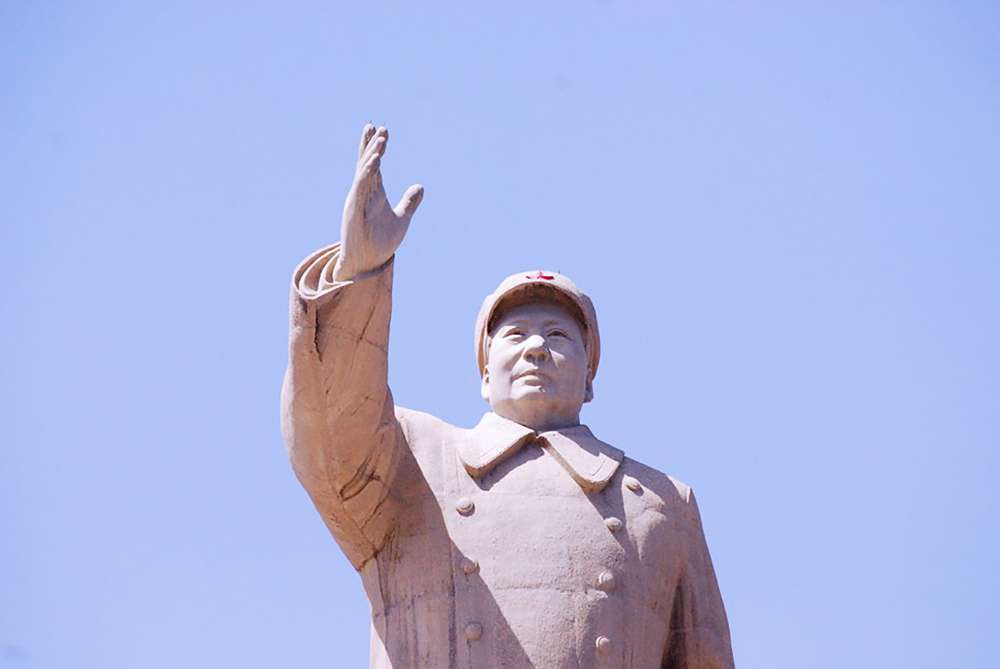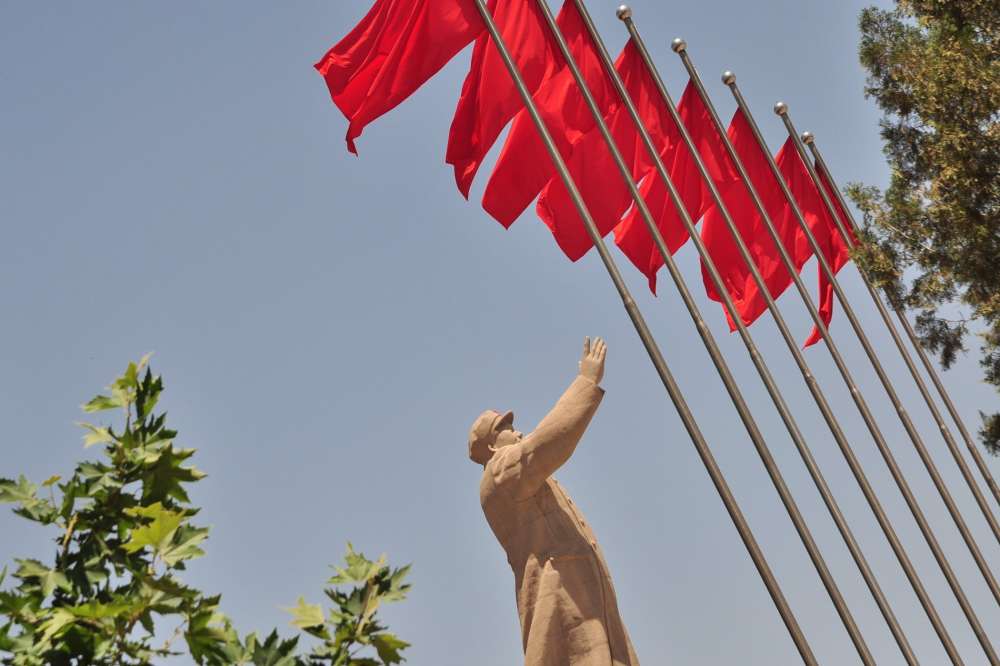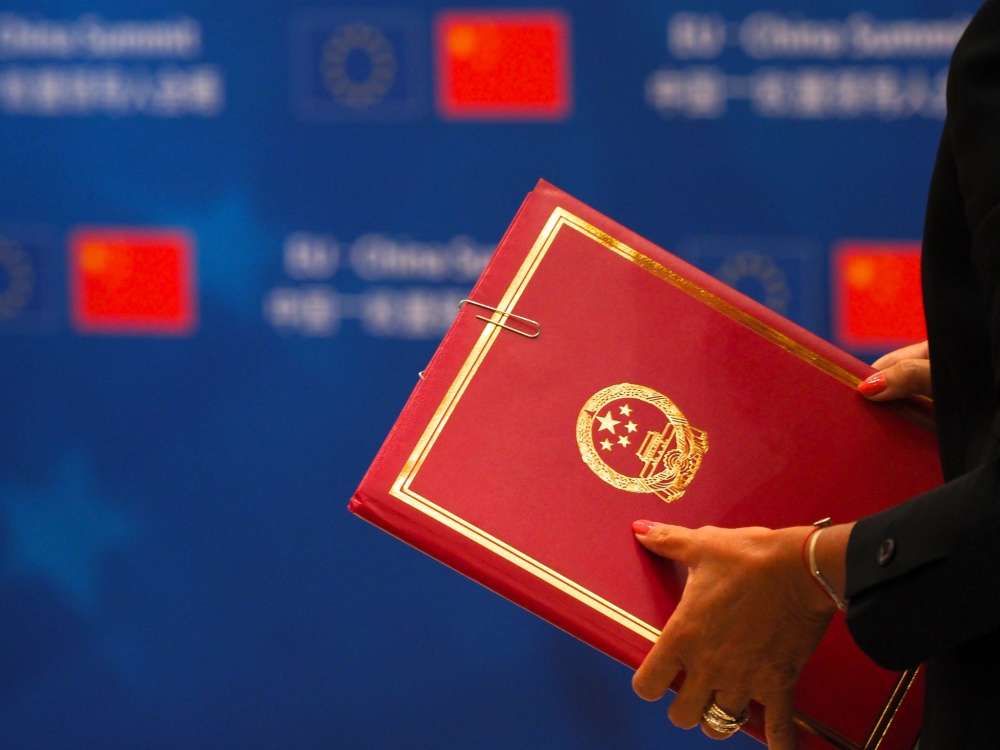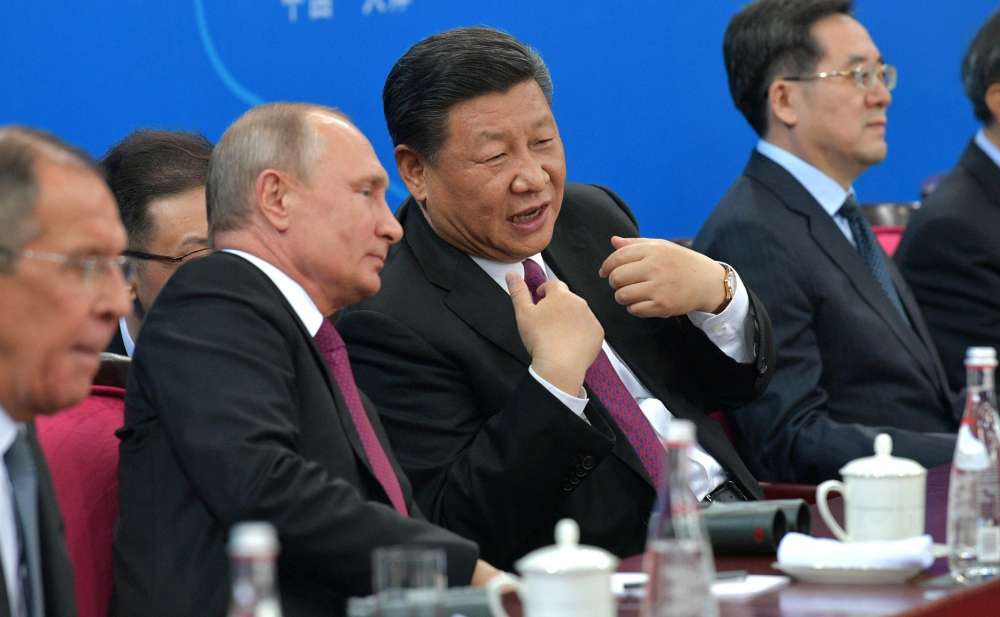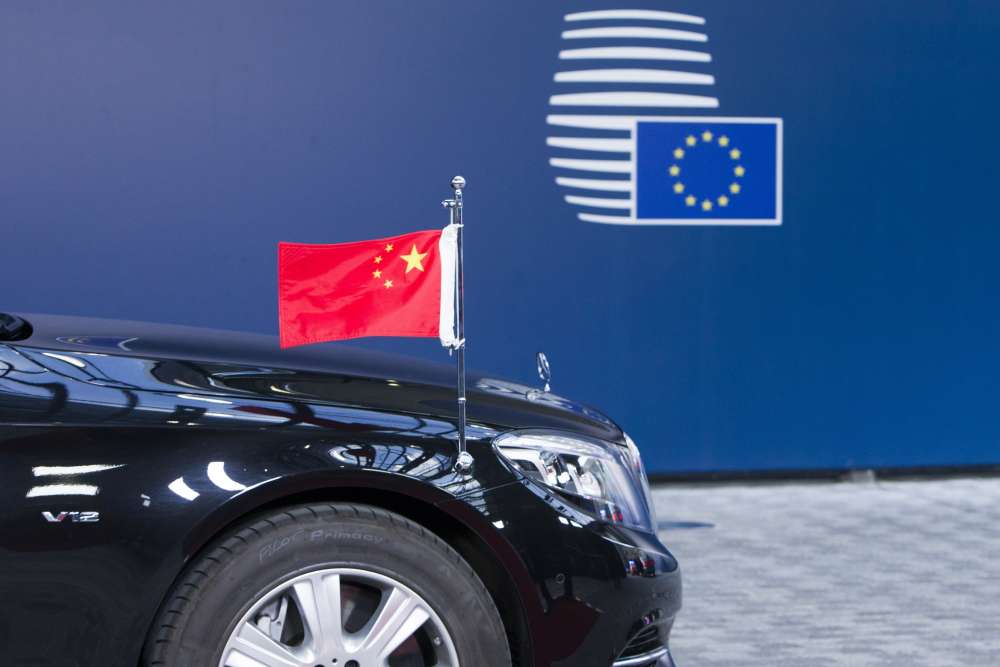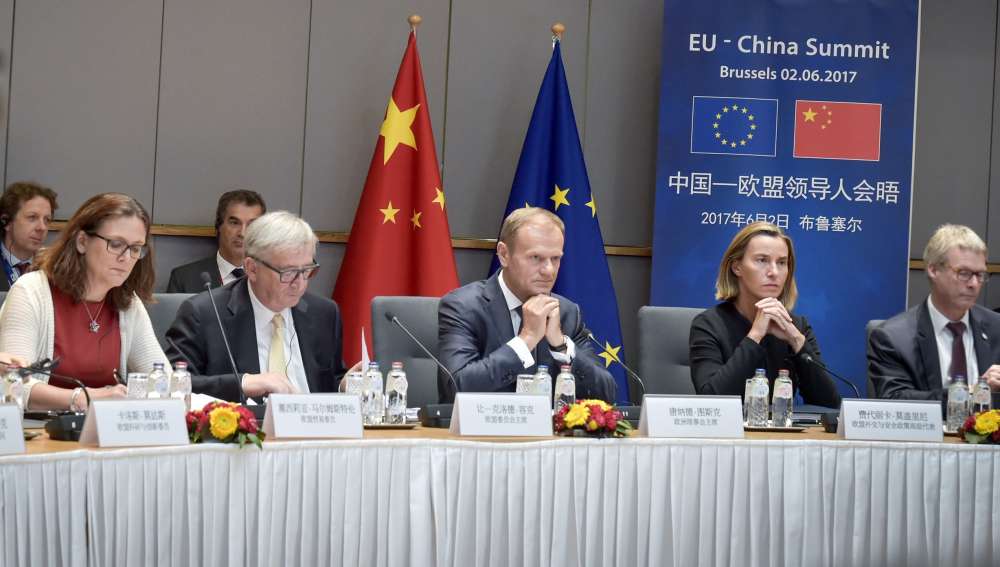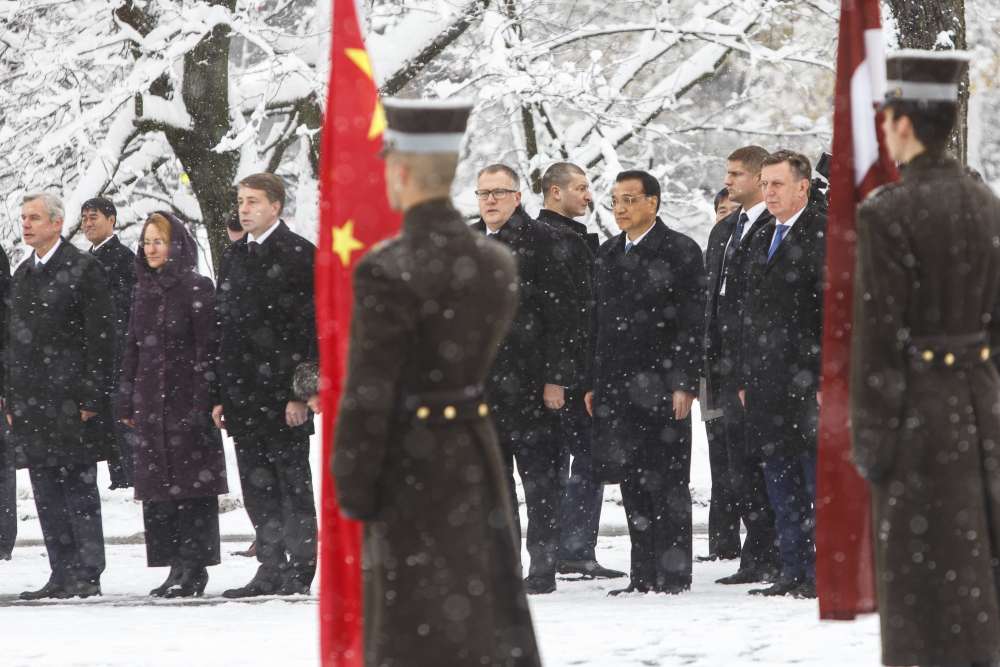During his visit to Beijing in mid-November, German Foreign Minister Heiko Maas publicly discussed the situation in China’s northwestern province of Xinjiang. According to satellite images as well as reports by journalists, academics and human rights organizations, up to one million citizens belonging to the predominantly Muslim Uighur minority are currently detained in so-called reeducation camps. The rest of the population lives under total surveillance and is subjected to mass DNA testing. Intimidation and surveillance by Chinese state authorities also extend to citizens of Uighur and others of Turkic descent living in Western countries. Maas called for “transparency” and said that the camps were unacceptable, forcing Chinese Foreign Minister Wang Yi to issue a public response. He was the first member of the central government to comment on the situation in Xinjiang. Wang dismissed the Western reports as “rumors,” calling the camps “preventive measures” and “completely in line with the direction the international community has taken to combat terrorism.” At the same time, he emphasized that this was all an “internal matter.” Wang echoed the words of the Chinese embassy in Berlin, which had accused Germany of a “striking interference into internal affairs and a grave violation of China’s sovereignty” after the German parliament held a debate on the situation in Xinjiang. China has used similar language to push back against a coordinated letter by 15 Western ambassadors in Beijing to the Communist Party chief in Xinjiang, in which they demand a meeting to discuss the situation in the province. The spokesperson of the Chinese foreign ministry called the letter “rude and inacceptable,” and denounced it as exceeding the ambassadors’ “mandate under the Vienna Convention on Diplomatic Relations.”
The Chinese party state will not get away with this line of argument. On the contrary: external criticism is only bound to increase. Chinese representatives are facing more frequent and intense questioning on the situation in Xinjiang in their encounters with Western diplomats, experts and activists. Put on the defensive, they respond with a set of justifications and counter-narratives. This strategy was on display at recent conferences, where Chinese officials countered what they framed as gross misrepresentations underlying Western criticism with their own “real facts.” The measures in Xinjiang, so the Chinese argument went, are directed against terrorists with international connections who present a danger not just to China but to the whole world. In fact, they argued, “terrorists” from Xinjiang have already committed a multitude of gruesome attacks; however, because of their “Western-centric point of view,” the US and Europe negate this danger. When attacks happen in New York, Westerners are concerned; but their tunnel vision, the Chinese critics assert, leads them to ignore the same danger in China.
Along the same lines, Chinese conference participants called the response of the Chinese state “balanced” and “proportional.” In this official narrative, there are no camps in Western China; only “vocational training centers” in which everyone has “full freedom.” Access to education, so the Chinese argument, is crucial so minorities can get “good jobs.” According to this narrative, the centers also guarantee religious freedom of choice: One Chinese conference participant argued that the Chinese state’s measures are actually rectifying the fact that, in the past, members of the Uighur minority have not been able to choose their religion or to live as atheists, which she framed as violating the rights guaranteed in the Chinese constitution. Another line of argument suggested that terrorists in China are connected to international terror groups in the Middle East; while these ties need to be severed, Chinese representatives argued, one cannot cut the whole province off from outside communication. That is why, according to Chinese conference participants, the measures “target a particular group” that is not “really sizable” in comparison to the total Chinese population. This argument lays bare the core logic of the Chinese party state: the up to one million Chinese citizens that are reportedly detained in camps are seen as a quantité négligeable. Human dignity and the rights of the individual citizen count for nothing; the party state’s claim to absolute power justifies everything. As a recent statement by concerned scholars points out, the repression in Xinjiang is “consistent with the CCP’s broader implementation of the concept of ‘social management’ as a means of preserving its hold on power.”
Just one participant presented an argument that was better tailored to a Western audience. After September 11, he argued, the US had also overreacted against the terrorist threat. The same may now be true in China, which has seen 8 to 10 horrific terrorist attacks. Over time, he stated, the government could reconsider some of the policies — but without compromising on its goal to keep the people safe and the country stable.
At the United Nations, Chinese officials also try to silence any advocacy for the rights of Chinese minorities. This May, Chinese representatives were enraged after Interpol decided to remove Uighur human rights activist Dolkun Isa from its red notice list. Isa had fled China in 1994 to Germany, where he was granted asylum and, in 2006, German citizenship. For over 20 years, China had abused Interpol for political purposes to have Isa put on the red notice list. When a Chinese official was head of Interpol, Isa was taken off the list— something that will have only increased Beijing’s ire. In April, Chinese officials exerted maximum pressure on the UN to prevent Isa from speaking at the UN’s Permanent Forum for Indigenous Issues session. China called him a terrorist and argued he should not be accredited for security reasons. They escalated the matter to the UN Secretary-General’s office to prevent UN staff from issuing him a badge. Isa received his security badge only at the last day of the forum’s April session and was able to give his remarks. In May, China then decided to take revenge on the Society for Threatened Peoples (Gesellschaft für bedrohte Völker), a German NGO to which Isa belongs. In the UN Committee on NGOs, China moved to revoke the consultative status of the organization and had already mobilized support from allies such as Russia and Cuba. China withdrew its proposal after heated debates. The US had informally threatened Beijing to escalate its criticism of China’s actions in Xinjiang by making it the major topic in all meetings if China did not relent on its crusade against the German NGO.
This demonstrates that the Chinese party state is concerned about mounting international pressure regarding its actions in Xinjiang. Even absent a Dalai Lama-type figurehead, the prosecution of China’s Uighur citizens will rise up the list of Western concerns. The situation in Xinjiang has the potential to explode in Western public debates, especially in the US. This could prompt further political action soon. The Uighur Human Rights Policy Act of 2018 has bipartisan support in the US Congress. If this bill passes, it would trigger the application of sanctions according to the Global Magnitsky Act on Chinese officials found responsible for human rights violations. At the same time, majority-Muslim states could also intensify their criticism of China. In the case of the Rohingya, Europe cooperated with the Organization of Islamic Cooperation that brings together 57 predominantly Muslim states. This could also happen with regard to Xinjiang.
Companies supplying technology for the Chinese surveillance state, which the Communist Party seeks to perfect in Xinjiang, will also face increasing pressure. If passed, the US bill would mandate a report on the Chinese companies bankrolling repression in Xinjiang, possibly triggering sanctions. This is making investors nervous. One example is Hikvision, a Shenzen-listed company that supplies surveillance equipment. When questioned by investors, Hikvision responded that they only make products and cannot control what customers do; but “as one investor put it, that line no longer works in gun debates in the US and it’s not going to work for state surveillance in China.” Pressure is also sure to intensify for Western companies supplying or cooperating with the Chinese surveillance apparatus. One such case is Thermo Fisher Scientific, which supplies equipment for mass DNA testing. (For the time being, the Massachusetts-based company seems to have doubled down on the Chinese market with a sycophantic statement praising President Xi.) At the same time, companies such as Apple and Google will also face increasing scrutiny about their activities in China. A group of academics issued a statement in late November calling upon “academic institutions around the world with formal partnerships with state-run Chinese academic institutions to express their concern about the present situation in the XUAR with their colleagues and to consider suspending their partnerships until the camps have been closed and all detainees are released.” For now, the Chinese party state seems defiant. Its mouthpiece Global Times recently proclaimed: “Regardless of how much pressure the West places on China, Xinjiang will stick to its own path.”
In the West, there are still a number of useful idiots trying to shield the Chinese government from criticism over the repression of its citizens. Former German Chancellor Gerhard Schröder is one of them. Asked about the situation in Xinjiang in a recent interview, he responded: “I’m not sure. I’m very cautious about this discussion because I don’t have any information.” Perhaps Schröder, whose support staff is still funded by German taxpayer money, should ask for the relevant reports by journalists, academics and human rights organizations. Reading broadens the horizon. That also applies to former chancellors. Our political, societal and business elites should not fall for the justifications and counter-narratives of the Chinese party state.
…
This is an adapted and translated version of a commentary in German which first appeared in Tagesspiegel Causa on November 20, 2018.
